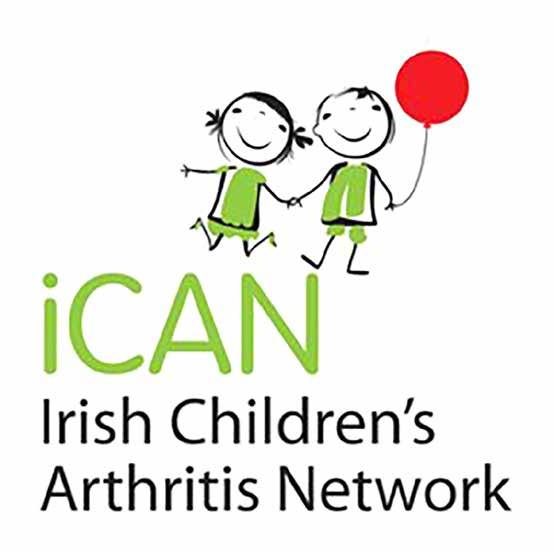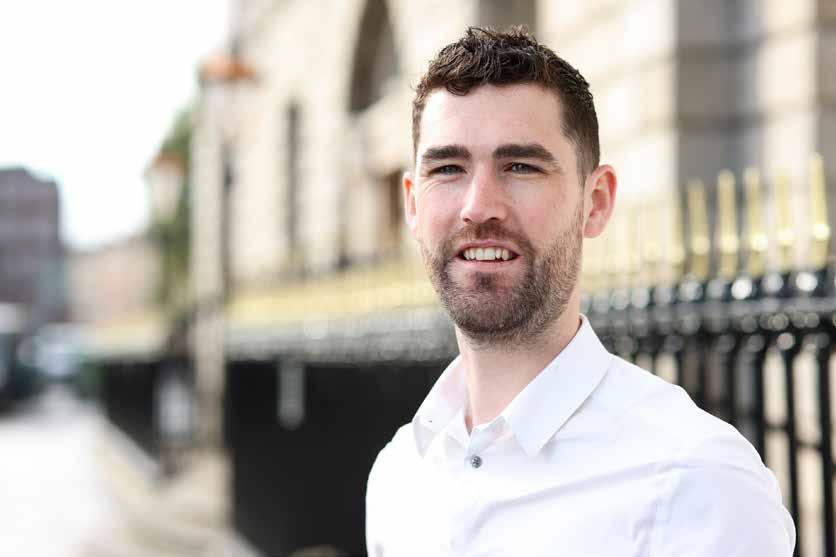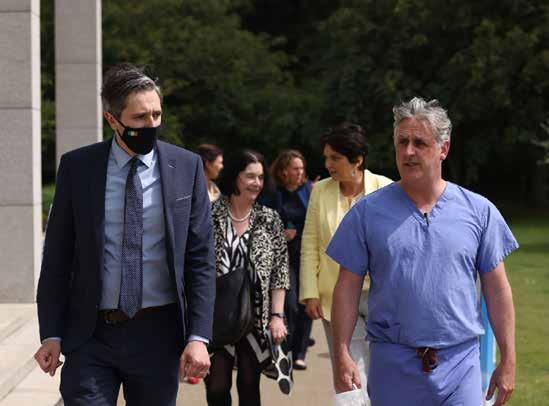22 Epilepsy
A focus on epilepsy for International Epilepsy Day 2022! Written by Paddy McGeoghegan, Epilepsy Ireland Advocacy & Communications Manager
know about SUDEP – whether they are deemed as being high risk or not. In the past, SUDEP was often something that was not widely discussed but attitudes are changing. In a 2020 survey we conducted, it was found that 81% of people with epilepsy wanted to know more about SUDEP and that they wanted to hear about it early in their diagnosis with the condition – preferably from their consultant. For healthcare professionals, knowing when to talk to a patient about SUDEP can be difficult but it is a conversation that most people with epilepsy want to have. Again, we have an information resource on www.epilepsy.ie about SUDEP and if you have direct contact with patients with epilepsy, please do take the time to visit it and learn more.
In advance of International Epilepsy Day 2022 on the 14th of February, I was delighted to be contacted by the Hospital Professional News editorial team to provide an update to you about Epilepsy Ireland’s plans for the day – and to give a general update on topics which may be of interest to readers of Hospital Professional News that could assist in your professional lives. On the behalf of everyone at Epilepsy Ireland, we would like to put on record our thanks to everyone involved in hospital services for your service over the last two years. The dedication and service of frontline workers across Ireland has been a constant throughout this pandemic and while I know that times remain challenging, we felt it wholly appropriate to outline our thanks to you all at the outset of this article. Our team here at Epilepsy Ireland have fielded many questions about COVID-19 and epilepsy and the potential impact of vaccination on persons with epilepsy. For those of you who may have patients with epilepsy, I want to highlight that there is a direct information resource on our website www.
epilepsy.ie addressing many of the common questions which are being received. Please feel free to visit the site and use the resources in working with your patients. One key question we have received is whether a person with epilepsy will be more susceptible to catching the virus due to their condition. The answer here is that there is no known evidence to suggest people with epilepsy are at higher risk of catching the virus. Another key question has been around whether a person with epilepsy will be more adversely affected should they unfortunately contract COVID-19. Again, there is no evidence to suggest that people with epilepsy are more adversely affected by the virus in terms of developing severe infection which may lead to hospitalisation or death. However, we have highlighted throughout the pandemic how the virus could have an impact on their existing condition – i.e, their epilepsy. This is because in most cases the virus comes with a temperature and a temperature in a person with epilepsy could reduce the person’s seizure threshold. This could therefore lead to a breakthrough seizure which could lead to a deterioration in seizure control;
FEBRUARY 2022 • HPN | HOSPITALPROFESSIONALNEWS.IE
social implications through the loss of a driving license; and it should not be forgotten that a seizure can be life-threatening in cases. The life-threatening nature of epilepsy is something that can often come as a surprise to the wider public when discussing the condition. However, this is unfortunately a reality of epilepsy. The public can be particularly surprised when we discuss Sudden Unexpected Death in Epilepsy (SUDEP). SUDEP is a rare but devastating aspect of epilepsy and approximately 21-44 people with epilepsy pass away due to SUDEP each year in Ireland. Discussing SUDEP with people with epilepsy and their families can be a difficult conversation for healthcare professionals to have as there is so much we don’t know about this aspect of the condition. However, at Epilepsy Ireland, we prefer to focus on what we do know. We know that the better a person’s epilepsy is controlled, the less a risk of SUDEP. We know that the better a person’s epilepsy is managed (knowing triggers, taking medication as directed etc), the less of a risk about SUDEP. Crucially, we also know that people with epilepsy in Ireland want to
With our contact with people with epilepsy and their families across Ireland, what is communicated to us daily is the importance of the public knowing what to do in the event of someone having a seizure – which brings us nicely into what the focus of our International Epilepsy Day campaign will be. Last year, in a survey of 1,000 members of the Irish public, 9 out of 10 respondents completely underestimated the prevalence of epilepsy in Ireland – believing it to be quite rare. The reality is that there are 40,000 people living with the condition around Ireland with approximately 2,000 new diagnoses every year. The condition is far from rare and is actually one of the most common neurological condition in the country.This is why it is vitally important the public know what to do in the event of a person having a seizure as there are people within their family, friend group and workplace who may be living with epilepsy. However, seizure first aid is often misunderstood as being quite complex and this is not helped by the fact that there are longheld myths about the seizure first aid when it comes to helping someone having a seizure. These include the belief that you must









